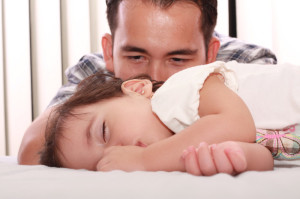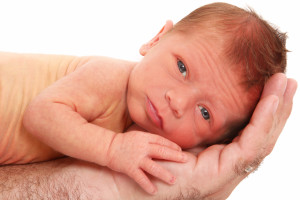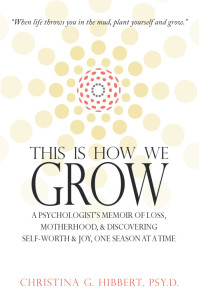Postpartum Depression & Men:
The Facts on Paternal Postnatal Depression (PPND)
“Can Men Get Postpartum Depression?”
As an expert on postpartum mental health, I get this question all the time. And the answer is: “Yes”. Men can, and do, get depressed after the baby comes and even during pregnancy. In fact, depression in new dads has its own name: Paternal Postnatal Depression.
How Common is Paternal Postnatal Depression?
According to research, Paternal Postnatal Depression (PPND) affects up to 10% of new dads throughout the world and as many as 14% of dads in the US [1]. Some experts believe the numbers may be even higher, however, because men are less likely to report that they’re depressed in pregnancy and postpartum. Considering that up to 20% of all new moms get depression, it makes sense that a high percentage of dads would too. After all, dads are going through the postpartum experience (and all that’s involved in becoming a new parent) too.
What are the Symptoms of PPND?
Pregnancy or Postpartum Depression may look different for men that it does for women. Though men may experience some of the “traditional” symptoms of depression (like fatigue and changes in sleep or appetite), they often (but not always) exhibit less sadness, crying, and outward emotional symptoms.
Some of the more common symptoms for Paternal Postnatal Depression include:
- Irritability
- Isolating/Withdrawing from relationships
- Working a lot more or less
- Low Energy
- Fatigue
- Low motivation
- Poor concentration
- Changes in weight or appetite
- Impulsivity
- Risk-taking behaviors, often including turning to substances (alcohol, prescription drugs, etc)
- Physical symptoms (headaches, muscle aches, stomach/digestion issues)
- Anger and outbursts
- Violent Behavior
- Suicidal Thoughts
What Causes Paternal Postnatal Depression?
A variety of factors may play a role in a dad developing PPND, including:
- Sleep deprivation—Most new parents underestimate the role sleep can play in developing symptoms of anxiety or depression,
 and most new parents also underestimate just how sleep-deprived they are!
and most new parents also underestimate just how sleep-deprived they are!
- Psychological Adjustment to Parenthood—Becoming a parent is a huge deal. It requires significant coping skills, and for many dads (and moms), can be quite overwhelming.
- Personal or Family History of Depression—Any history of depression or other mental illness certainly may put you at risk.
- Hormones—Research has shown that it’s not just a mom’s hormones that shift after baby comes; dads hormones shift too. “Testosterone levels go down and estrogen levels go up,” PPND expert Will Courtenay explains, and “Lower levels of testosterone are associated with depression in men”[2]. And, for those men with PPND who feel more weepy or emotional than usual, the rising estrogen levels may be the culprit.
- A Depressed Partner—Up to half of men with depressed partners are depressed too.
- Relationship Stress—The number one non-biological cause of Postpartum Depression in women is having an unstable relationship, and relationship stress puts men at a much higher risk for depression too.
- Feeling disconnected from Baby or Partner—Dads want to connect and be part of this experience too. But often they feel on the “outside” of things. Sometimes moms don’t realize they’re excluding dad from helping and caring for the baby, afraid he will “do it wrong”. And often, Mom is so caught up in bonding and caring for the baby, she fails to recognize her husband wants time with her too.
- Other factors that may contribute to PPND include: Recent loss or trauma, an unplanned pregnancy, financial or work stress, family or other life stress, and a colicky baby.
What Happens if I don’t get Help for PPND?
Like Postpartum Depression, untreated Paternal Postnatal Depression can have a significant impact on you and your entire family. Research has shown that depression in fathers is associated with:
- Poorer parenting practices.[3]
- Less attention to baby’s health and well-check visits/advice.
- Higher risk of behavioral problems in preschool-aged children.[4]
- Children with greater physical and mental health problems.[5]
- Poorer family and marital relationships.
Usually, untreated depression worsens, and this can impact your marriage, career, and family. Depression in fathers is also correlated with depression in mothers. When both parents are depressed, this can have a significant impact on parenting, bonding, and the overall development of the baby and other children. Thus, seeking the appropriate Postpartum Depression treatment is important.
What Can I do About Paternal Postnatal Depression?
It can be tough for anyone to admit they have depression, but it can be especially difficult for men. Many don’t believe postpartum depression can even happen to men, but we know better now, right? Seeking treatment is a powerful thing, for it allows you to put your health and the health of your family first and foremost, where it belongs. Just remember the Postpartum Support International Motto: “You’re not alone, dads. You’re not to blame. And you will be well.”
1) The first step is to recognize what’s going on with you and take it seriously. Often, after dads ask and learn that, yes, men can get postpartum depression too, I hear them say, “Yeah, I think that’s what I’ve got,” then laugh it off. Taking your health seriously is important for the recovery of you and your entire family.
 2) Seek support and resources. Your wife/partner, family, or friends may be a good place to start when seeking support. Just having one or two people you trust who know what’s going on can make a big difference in helping you recover. Learn all you can about PPND and treatment options. There are some great online resources just for dads (see below).
2) Seek support and resources. Your wife/partner, family, or friends may be a good place to start when seeking support. Just having one or two people you trust who know what’s going on can make a big difference in helping you recover. Learn all you can about PPND and treatment options. There are some great online resources just for dads (see below).
3) Work on family sleep. You need sleep to function well, and your family does too. Couples–work together to help each other get as much rest as possible.
4) Take a break as needed. I encourage new moms to take a little time for themselves each day and dads should do the same.
5) Seek to be involved with the baby. Spend time getting to know your baby. Help with bathing, dressing, or feeding when possible. Hold, cuddle, and gaze at your baby. All of these things will promote a stronger bond and connection between you two. Moms, let him help with baby and do it “his way.” Know that it’s a wonderful thing for baby to be exposed to both mom’s and dad’s ways of doing things.
6) Spend time together as a couple, and understand it’s common for sex to change after baby. You need time as a couple. I know it can be tough, but even a few quality minutes talking, holding each other, or doing something you enjoy together can help you stay connected. Sex is one of the most common couples’ issues after baby comes. Be patient and considerate of each others’ needs. Realize that it may take some time to get your sex life “back.” It’s not easy at first, for anyone. But it does get better. Trust me, it does.
7) Seek professional treatment. Sometimes self-help is just not enough. Your goal is to be well again, and professional treatment is a very effective way to achieve that goal. Psychotherapy is a highly validated treatment for depression. Couples Therapy is a wonderful option, especially if both of you are depressed or when the relationship is suffering. For some, medication may be necessary. And there are many other complementary and alternative modalities available too. Talk to your doctor to get you started, and keep searching until you find the treatment that is right for you.
Related Articles
Postpartum Depression Treatment
Postpartum Depression Treatment: For Dads & Partners
Pregnancy & Postpartum Emotional Health: What Every New Parent Should Know
Resources
Be sure to check out Dr. Hibbert’s Amazon Bestseller, This is How We Grow–
available now on Amazon.com!
Join my This is How We Grow Personal Growth Group!
FREE. Online. Growth. What more could you ask for?
Don’t miss a thing!
SUBSCRIBE, below, “like” my Facebook pages (Dr. Christina Hibbert; This Is How We Grow) and follow me on Twitter,Pinterest, & Instagram!
You may manage your subscription options from your profile
[1] Paulson, J.F., et al. (2010). Prenatal and Postpartum Depression in Fathers and Its Association With Maternal Depression: A Meta-analysis. JAMA. 2010;303(19).
[3] Davis, R.N., et al. (2010). Fathers’ Depression Related to Positive and Negative Parenting Behaviors With 1-Year-Old Children. Pediatrics.
[4] Ramchandani, P, et al. (2005). Paternal Depression in the Postnatal Period and Child Development: A Prospective Population Study. Obstetrical & Gynecological Survey. Dec, Vol. 60, Issue 12; pp 789-790.
[5] Paulson, J.F., et al. (2006). Individual and Combined Effects of Postpartum Depression in Mothers and Fathers on Parenting Behavior. Pediatrics. Feb.

